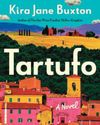
Childhood is a mystery. One moment our imaginations know no limits, and the next, that burning sense of wonder begins to fade. New York Timesbestselling author Jasmine Warga's new book explores that in-between stage of adolescence, where being oneself is sometimes the hardest, most mysterious quality of life.
In A Strange Thing Happened in Cherry Hall, we follow Rami who, while at the museum where his mother works, believes he sees a ghost roaming Cherry Hall-the same hall in the museum where a painting was recently stolen-and the ghost herself looks alarmingly like the figure in the missing painting. Rami's mother is an unfair suspect in the case of the missing art, so with the help of his classmate Veda (as well as a turtle named Agatha), Rami ventures to put the clues together to find the missing art, to identify the ghostly girl, and figure out who he is and who he may be becoming along the way.
I spoke with Warga about tackling the mystery genre, how to weave together reality with the imaginary, and more.
Something I really loved about this book was the feeling that not just anything could happen, but also that anything was possible. This is a mystery story, but there are also otherworldly elements. How did you build that sense of wonder in a book like this?
Esta historia es de la edición September - October 2024 de Writer’s Digest.
Comience su prueba gratuita de Magzter GOLD de 7 días para acceder a miles de historias premium seleccionadas y a más de 9,000 revistas y periódicos.
Ya eres suscriptor ? Conectar
Esta historia es de la edición September - October 2024 de Writer’s Digest.
Comience su prueba gratuita de Magzter GOLD de 7 días para acceder a miles de historias premium seleccionadas y a más de 9,000 revistas y periódicos.
Ya eres suscriptor? Conectar

What Is Your Story Question?
Revision and editing advice to take your first draft to the next level.

Writing for the People We Hope to Become
Elisa Stone Leahy's new middle-grade novel, Mallory in Full Color, tackles the in-between moments of adolescence, when who we are and who we want to become collide.

Creating Community
Whether hot off the presses or on the shelves for years, a good book is worth talking about.

Pat Barker
The Booker Prize-winning author of Regeneration shares the role characters play in developing novel ideas and explains what appeals to her about reimagining mythology.

How to Write in Different Genres
Emiko Jean and Yulin Kuang share tips and strategies for how they successfully write in different genres and mediums.

The Shortest Distance Between Two Points
Ten tips for writing a novel with 100-word stories.

Mayfly Marketing
How to sell your novel in a short-attention-span world.

"You'll be a great essay".
How to write six types of personal essays by finding the funny in your life.

The Idea Factory
Tired of staring at an empty screen? Unlock your inner fiction generator with these surprising inspiration techniques.

Seinfeld Was Right: That's a Story
Use mundane moments from everyday life to create stories that pack a punch.